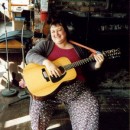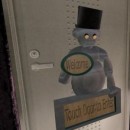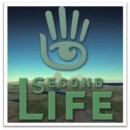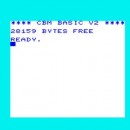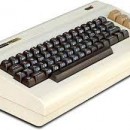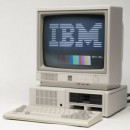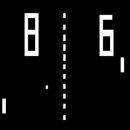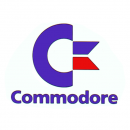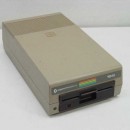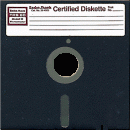The Case Against Camping (2008)
Rebecca took great offense at the illustrations and turned her venom on me. She threatened to sue me. Telling her I did not select the images made no impression on her, nor did she seem to understand just what an editorial is. I eventually told her to go f**k herself. It made for a most interesting comments section.
Read MoreBeing Virtually Virtual (2011)
Letting people into our real lives can be dangerous. Even if the window into our lives is a narrow one, we must be concerned with issues of privacy, safety, and security.
Read MoreGhost in a Machine (2009)
This song is about the virtual world Second Life. If you are unfamiliar with that 3-D world, it won’t make a lot of sense; if you are familiar, it will make perfect sense.
Read MoreYour Virtual Life is Waiting (2007)
What would you do if you could build a world—and a perfect body—from scratch? What would it mean if you could fly? If you were fabulously wealthy? What happens to our consciousness when we can simultaneously control multiple or inhuman bodies, each with its own personality? Computers make possible the creation of complex virtual worlds which can enrich, extend, and redefine the human experience. Linden Lab’s Second Life is such a world, a three-dimensional space created entirely by its inhabitants.
Read MoreComputer-Assisted Instruction for the Special Education Teacher (1985)
One of the most surprising findings about CAI is that it is not the brightest students who benefit most from it, but rather the below-average pupil who stands to benefit more
Read MoreComputers and Me (1999)
My relationship with computers has been a long and productive one. I feel rather less harshly toward Microsoft today than when I first penned this.
Read MoreTraining Paraprofessionals to Make Data-Based Training Strategy Decisions (1986)
A number of studies have shown teachers can be successfully trained to collect and analyze data daily using trend and error analysis techniques and to make resulting educational decisions that lead to improved student performance. Effects have tended to be positive across a variety of academic tasks and a variety of handicapping conditions, as well as across a range of educators and a variety of settings. However, the use of data-based instructional decision-making has not been widespread.
Read MoreRecent Research on Computer Assisted Instruction (1986)
While it could perhaps be argued that microcomputers have yet to cause great changes in the fabric of our educational systems, there is little doubt they have caused great changes in the publishing industry. Besides the publication of innumerable books, many popular magazines and scholarly journals have devoted whole issues to microcomputers. And one of the most popular topics is the use of computers in school. Unfortunately, an astonishingly large percentage of computer-related articles in even our most prestigious journals is speculation and opinion— informed speculation and opinion, perhaps, but speculation and opinion nonetheless.
Read MoreComputer-Assisted Instruction and the Handicapped Child (1984)
In 1954, B.F. Skinner published a paper in Harvard Educational Review in which he proposed the use of mechanical educational devices which operated on principles of operant conditioning (Pagliaro, 1983). He called these devices teaching machines, and the instructional method he named programmed Instruction. In the 1950s a number of Programmed Instruction teaching machines were placed in public schools. During the 1960s, computers, which were then large and quite expensive, were used to the same ends.
Read MoreSIX BITS 1983)
I wrote the augmentative communication computer program SIX BITS for a man with normal intelligence and quadraplegia that affected his speech, making it impossible for others to understand him. He used the program for years; earlier he had a Morse-code based device for which parts could no longer be obtained. Staff at his facility trained him to use the program. The VIC would remain on all day.
Read MoreUsing the TRS‑80 Model 100 Portable Computer as a Data Collection Device (1985)
BOSCO, The Behavioral Observation System— COmputerized, allows the TRS-8O Model 100 portable computer to be used as a relatively inexpensive data collection device instead of more expensive dedicated devices such as ElectroGeneral’s DATAMYTE and Observational Systems’ OS-3. BOSCO, a program written in BASIC for the Model 100 with expanded memory, has been used to collect real-time behavioral data in field research studies.
Read MoreBOSCO (Behavioral Observation System, COmputerized) Operations Manual (1985)
The behavioral data gathering and analysis program Behavioral Observation System, COmputerized is a program written in the BASIC programming language for the TRS-80 Models 100 and 102 portable computers. I am the sole author. It was used extensively by researchers at the Special Education Department at George Peabody College, which is a part of Vanderbilt University.
Read MoreCollecting and Analyzing Continuous Behavioral Data with the TRS-80 Model 100/102 Portable Laptop Computer (1989)
The behavioral data gathering and analysis program Behavioral Observation System, COmputerized is a program written in the BASIC programming language for the TRS-80 Models 100 and 102 portable computers. I am the sole author. It was used extensively by researchers at the Special Education Department at George Peabody College, which is a part of Vanderbilt University.
Read MoreThe Potential of Microcomputers as Teaching Machines for Individuals with Severe Handicaps (1987)
Although it is hardly possible to predict the exact manner in which microcomputers will change the lives of persons with severe handicaps, it is possible, by considering the unique abilities of these machines, to speculate about ways in which they could be of major benefit. Four characteristics make microcomputers especially suitable tools for working with persons with severe handicaps: programmability, the ability to respond to environmental events, the ability to provide reinforcing consequences for behavior, and the ability to keep detailed and precise records.
Read MoreThe Advantages of Microcomputers for On-site Collection and Analysis of Behavioral Data (1987)
This was one of the papers for my qualifying examination at Vanderbilt University.
Read MoreVIC-20 is a People Pleaser at Scales School (1986)
On April 14 the VIC-20s were going at Scales Elementary School in Brentwood, Tennessee, near Nashville. Members of the Nashville Commodore Users Group lined the walls of the cafeteria, each manning a VIC, and explained various aspects of the rainbow machine to fascinated members of the Parent-Teacher Association. One Machine played music, another spoke with the help of a Votrax Type ‘n’ Talk speech synthesizer, a third drew beautiful Super Expander graphics, and a fourth showed how helpful the VIC can be in keeping track of information like grades and attendance. One user had written a program that told where to look in the sky at any time to find satellites.
Read MoreClark in Three Parts (1991)
In 1991, in the pages of the Stone Mountain Computer Users Group newsletterm I told the story of my work with a physically disabled man I called Clark.
Read MoreUsing a Discrimination Task to Teach Scanning to Severely Physically Impaired Non-Vocal Children (1984)
“All a Board” is an augmentative communication computer program which was designed by the author to allow individuals with very severe physical handicaps to communicate their wants and needs to others, using a single switch. It serves the same purpose as any communication board, but requires much less physical ability.
Read MoreReview of EZ-SCAN (1993)
EZ-SCAN is a memory-resident software program for MS-DOS computers. It enables an individual to access all keyboard functions via a single switch attached to a joystick port. Selections are made by multiple switch entry.
Read MoreThe Use of Microcomputers as Augmentative Communication Devices (1984)
For persons with severe motor impairments which limit their ability to move as well as to speak, computers are of importance as communication aids. However, computer-based communication devices have heretofore been expensive and often crude. The proliferation of reliable, low-cost personal computers has solved the hardware problem, but communication ware is frequently inadequate or inefficient.
Read MoreUsing a Bar Code Reader to Enter Behavioral Observations (1988)
Our impression is that use of a computer-based bar code readeris a suitable method for collecting some types of behavioral data. The necessity of looking away from the keyboard suggests the BCR may be more practical for collection of interval rather than continuous data. The provision of mechanical guides would provide tactile cues for positioning the BCR and might reduce the need to look at the scanning sheet.
Read MoreUsing a Microcomputer to Collect Behavioral Data on an Augumentative Communication Program (1989)
We added automatic data collection routines to a microcomputer-based augmentatative device which has been used for more than five years by an adult male nonretarded resident of Greene Valley Developmental Center. The data were collected by the computer, without the necessity of a human observer. Data are presented for frequency and length of use, number of switch closures, and accesses of output devices.
Read MoreThe Video Game: Its History and Significance (1981)
I saw my first pinball machine in Bisbee, Arizona, in a little market that backed up to the huge open pit copper mine that dominates that town. It stood in the corner, lights lazily flashing, dark-tressed temptresses beckoning for my dimes. It had no flippers. I put a coin in the slot and shot five steel balls up the long chute to plop solidly in various holes. “This is it?” I asked myself. “This is it?”
Read MoreAugmentative Communication Systems: Suggestions for Improvement of Selection Strategies (1984)
Many persons with a wide variety of disabilities are unable to speak. Those with good physical mobility can learn to effectively use American Sign Language, pencil-and-paper, battery-operated electric typewriters or memowriters, or other communication aids or systems (Silverman, 1980). However, the severely physically involved, non-vocal person— for instance, children with cerebral palsy, stroke victims, and those with degenerative neurological or muscular diseases such as Amyotropic Lateral Sclerosis or Muscular Sclerosis, may lack the voluntary control to use even a lap board with words or symbols drawn on it.
Read MoreSuper Tracker (1984)
SUPER TRACKER was a computer program to track visual movement of young optometry patients. It was written in BASIC and ran on the inexpensive Commodore 64 computers. SUPER TRACKER allowed its owner a wide latitude in setting parameters for presenting visual stimuli.
Read MoreVirtual Personae: Part I (2011)
In a paper written in 1993, Allucquere Rosanne (Sandy) Stone described an incident that took place in 1982 on the text-only CompuServe CB chat simulator: Sanford Lewin, an American psychiatrist and a male, created an account using the name Joan Green and contrived an elaborate masquerade as a physically disabled female neuropsychiatrist.
Read MoreVirtual Personae: Part II (2011)
In the anonymous and often highly sexually charged world of Second Life, gender is of primary import. Most avatars are human, and almost all are decidedly male or female. Most, like me, are young and thin and beautiful and extravagantly dressed. It’s the avatarian norm.
Read MoreCUGA Newsletter (1990-1992)
By the time I moved to Atlanta in 1989 the home computer craze was on the wane. I nonetheless looked up a Commodore users group in DeKalb, my home county: The Commodore Users Group of Atlanta. I remained a member and sometimes board member as we all slowly moved (most of us reluctantly) from our beloved C-64s to Macintoshes and PCs.
Read MoreCommodore 1540/1541 Disk Drive Modification (1984)
Run magazine paid Rex Thompson and I for this article. I’m not sure if it ever ran. I’m unable to locate the photos.
Read MoreSecond Life Song (2006)
My Second Life led me in directions I didn’t anticipate– for instance, I met the love of my real life there– but when I was new in Second Life I thought I might try performing live. I never got around to it, but using my avatar name as a pen name, I did write two songs about my experiences. This is the first. I wrote it my first week in world.
Read MoreNCUG Magazine (1984-1989)
In the 1980s Nashville had a vibrant community of computer enthusiasts. Arguably the largest user group was the one with which I was affiliated—the Nashville Commodore Users Group. At its height there were more than 450 active members and meetings every week. There was a monthly newsletter, for which I was often editor.
Read MoreThe Brief but Illustrious Career of Reggie Ramloose (1983-1987)
When I arrived in Nashville for grad school I ventured to a computer store on 8th Avenue North for the formation of a users group for the VIC-20. There were about a dozen people, and each of us was eyeing all the others, wondering what sort of weirdo would have a computer in their home. The group grew and in 1983 merged with a forming C-64 group to form The Nashville Commodore Users Group. Soon there were more than 450 members and there was at least one meeting every week.
Read More


